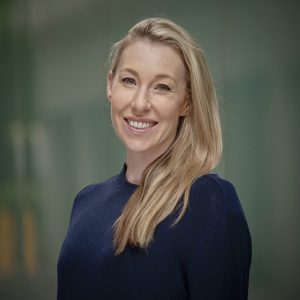
We are excited to announce that our Principal Training Centre Advocate, Dr Simone Deegan, has been awarded the New Scholar Prize by the Australian and New Zealand Society for Criminology for her article, The meaning of murder: Family members in the lives of juvenile homicide offenders. The New Scholar Prize is awarded each year to the best publication in criminology written by an early career researcher.
Simone’s article focuses on the family members (mothers, fathers, siblings, and grandparents) of young people under the age of 18 who were convicted of murder and sentenced to life imprisonment. Published in the British Journal of Criminology, it examines their experiences leading up to the offending, after the young person was arrested, through the court process, and across the young person’s life sentence.
We sat down with Simone to talk about her article and the impact of youth homicide offending on family members, which is a largely under-researched topic in juvenile crime studies.
What made you interested to research this topic?
The research is part of a larger project that started with my PhD (The lives and adjustment patterns of juvenile lifers), focusing on the young people themselves, and how they mature through their life sentence. As a part of that, I wanted to interview family members to get their view on the reasons for the offending and the level of commitment they have for supporting the young person in prison and beyond.
What findings stood out to you?
The lack of support people [family members] have. They really just have each other. Family members told me that they also feel like victims of the crime, but without the status of being true blameless victims. Feeling ostracized and bullied in the community isolated them from seeking out potential avenues of support. Other key difficulties included visiting and providing financial support to the prisoner, while taking care of other dependents, like siblings, and being able to maintain their employment and social lives.
Would you want to research any of your findings further?
Since a lot of the young people from my initial research are nearing release, I’d like to look into their longer-term trajectory – whether some sort of offending remains, or if they successfully reintegrate back into society. For example, if they find employment, have normal relationships, if they mature “normally” or whether progress came to a crunching halt when they went into prison. No Australian research has really looked into this yet. I would also want to interview the family members and see how that next phase looks for them.
Is there anything you found surprising in the results?
It would surprise people how limited the offender history is for most of these young people. A lot of people think that murder is something that is built up to, but this is not always the case. The most common scenario of youth homicide is the group fight that takes a sudden and lethal turn. Bearing this is mind, it’s really hard to predict who, what and where murders happen. Especially for kids, sometimes these things blow up and are over in seconds, and then the picking up the pieces is forever.
How did it feel to win the award?
Amazing!
Do you plan on doing more research?
Yes, I’ve just been awarded a grant from the Law Foundation of South Australia to look at public perceptions of murder and sentencing around murder. So, my team will establish a baseline of what the public understands murder to be and whether anything less than the mandatory life sentence with a 20-year non-parole period would undermine public confidence in the judicial system. That’s my next project, but then I would want to do the longer term follow up with the youth homicide offenders and their families.
Sadly, Simone will be leaving us at the end of the year as she’s going back into the world of academia as a researcher and lecturer in criminology at Flinders University. We thank Simone for her wonderful contribution to the Office, congratulate her for winning the New Scholar Prize, and look forward to hearing more about her work for youth justice in the future.
